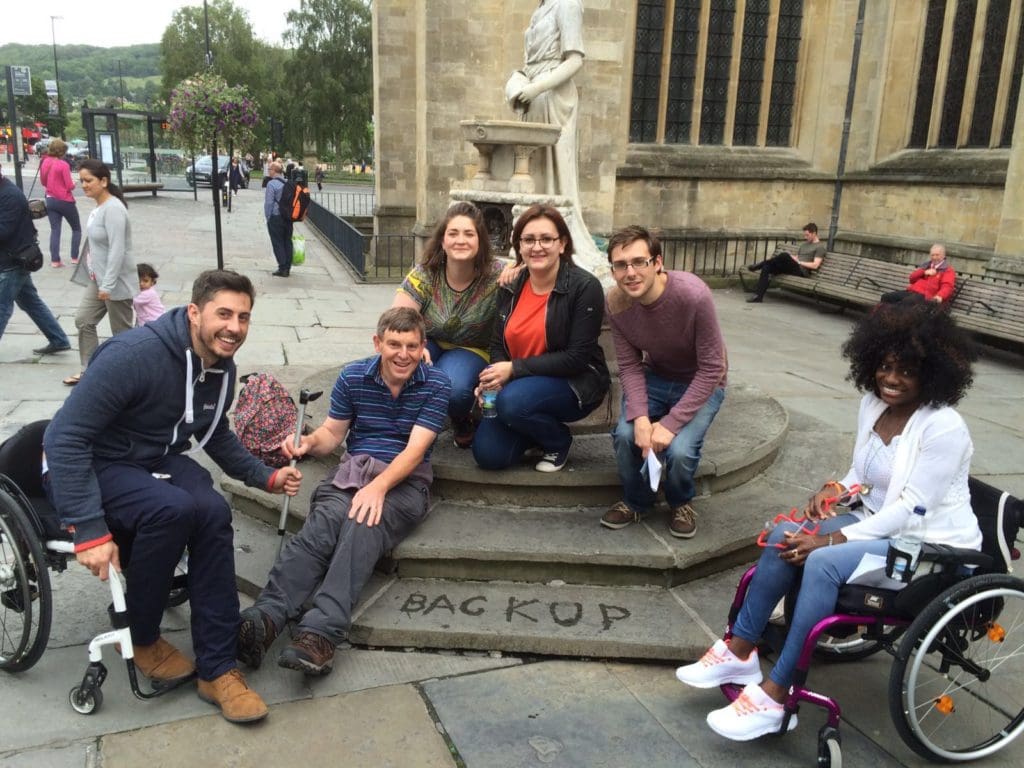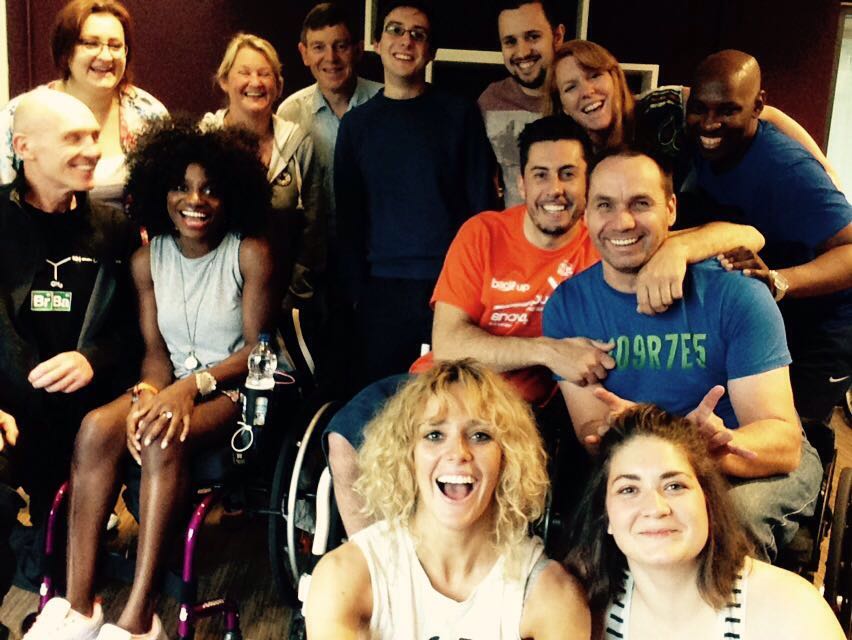Shelley’s story: Becoming an occupational therapist
2 August 2017

On Friday 15th November 2013, I was driving to work as usual. It was a day like any other, travelling the same route that I had done for months. Suddenly, my car skidded on a patch of ice – sending me off the road and through a hedge. I woke up, in the driver’s seat of my car, in a field. An overwhelming array of emergency service vehicles arrived on scene, including The Midlands Air Ambulance. It was their paramedic who was immediately worried about my neck, and she travelled to the nearest hospital with me in an ambulance. I was relieved to have somebody so caring with me, but couldn’t quite believe what had happened. I was then moved to the Queen Elizabeth Hospital in Birmingham for specialist treatment. Here it was confirmed that I had broken my neck.
I had several lacerations and a broken left arm, as well as my C1/C2 incomplete spinal cord injury. After a series of operations, I was moved from critical care to the trauma ward and then prepared to go to my parent’s home to start adjusting to this new chapter in my life.
As my spinal cord injury had minimal impact on the movement of my limbs, the staff at the hospital never really discussed how it might affect my life. I was quite positive about my recovery and, at that stage, hadn’t felt the full psychological impact of the injury.
It was once I’d left the hospital that things started to hit home. I discovered the discomfort of wearing a neck brace constantly, came off strong pain medication and had regular periods of fatigue.
Being a passenger in a vehicle made me particularly anxious, as I had no control over the car and this constantly reminded me of my accident. It was at this point that I decided to reach out for help to overcome some of the new challenges I was facing.
Back Up came up in my internet search, and I was amazed that they offered support for people with a spinal cord injury who can walk, like myself. I applied for their Next Steps course in September 2016 and was thrilled to get a place. I met some inspirational people on that course and I was encouraged to see my situation in a positive way – allowing me to explore my feelings and frustration in a safe environment. They helped me to address my pain levels and fatigue, and gain the physical and emotional confidence I needed to move forwards with my life. It was a lot of fun too. I highly recommend Back Up courses to anyone with a spinal cord injury.

Shelley on Next Steps course (bottom right)
Since then, I’ve called Back Up whenever I’ve needed to talk things through. This led to me getting a mentor and it’s been great to have such a knowledgeable support network at the end of a telephone. I’ve now realised that I am not alone in my thoughts and I am proud to be a part of the Back Up family. I’ve even become a mentor myself, and I’m enjoying passing on all the advice and support that I was so glad to receive.
Before the car accident, I advised on equality and human rights, as well as working at a pub on evenings and weekends. After the accident, I had several sessions of physiotherapy and occupational therapy on my left arm. The therapists that I met along the way were all so amazing and made me feel positive about the future. Following the sessions, I really wanted to give back a bit of what they’d given me. So, I decided to go back to university to retrain as an occupational therapist.

University was a welcome challenge. Placements varied as I was in different settings throughout the three years of study. My first placement was also the first time I had returned to full-time work since the accident. For more physically demanding days, it was important that I kept up good habits: sleeping well, staying hydrated, and taking regular tablets and vitamins. This has continued until this day, and I have learned to look after myself and be open and honest about my spinal cord injury and how it affects me.
Now practising as an occupational therapist, I remind myself of the learning curve that I have been on and how I can use that experience to help the people I work with in my job. I also try to pass on some of the positivity and hope that I was given by my therapists, as I know how important this was to me during the early days after my injury.
It is rewarding to know that I might be able to assist someone during their rehabilitation in the same way my occupational therapists and Back Up supported me. That’s pretty special.
If you would like to find out more about mentoring, our Next Steps course or any of our services, please visit the support for you section of the website.


